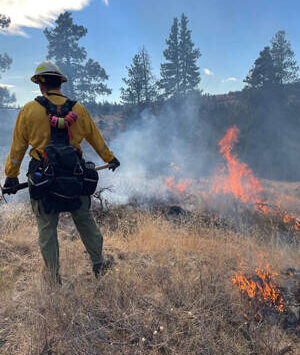YAKIMA – Stage 1 burn bans in Okanogan, Chelan and Douglas counties expire at 4 p.m. on Wednesday, Dec. 18, as scheduled, according to the Washington Department of Ecology (Ecology).
A Stage 1 ban prohibits use of uncertified wood-burning devices (including wood stoves, inserts and fireplaces) and all outdoor burning. Stage 2 bans prohibit all burning.
These activities may resume after the burn ban expires. However, Ecology urges people to think twice before burning because smoke from outdoor burning and wood-burning devices tends to build up at this time of year, when stagnant air traps smoke close to the ground.
For burn ban updates go online to www.waburnbans.net.
By limiting burning and following restrictions when burn bans are called, residents can help improve air quality sooner.
A 2009 Ecology analysis estimates that fine particles contribute to about 1,100 deaths and about $190 million in health-care costs each year in Washington.
Fine particles in smoke are so small they can easily get into your lungs. Once there, they can cause heart and breathing problems, and even death.
Children, people with asthma and respiratory illnesses, and adults older than 65 are most at risk. Air pollution also can be especially harmful to people with lung and heart problems and people with diabetes.
The Washington State Department of Health recommends that people who are sensitive to air pollution limit time spent outdoors, especially when exercising. Air pollution can trigger asthma attacks, cause difficulty breathing, and make lung and heart problems worse.
Ecology recommends that people limit vehicle trips, combine errands or use public transportation to reduce air pollution.
You can track air quality in your area by using the Washington Air Quality Advisory (WAQA). This is Ecology’s tool for informing people about the health effects of air pollution, including fine particles. It uses color-coded categories to show when air quality is good, moderate or unhealthy. For more information about WAQA, see this Ecology fact sheet.




